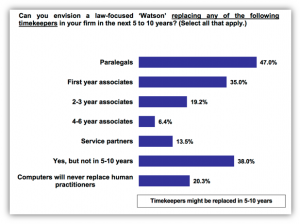The NEW TRENDS in the LEGAL BUSINESS
I was privileged to attend ILTACON 2016 (International Law Technology Association Conference) that, in this present edition, counted upon 3.500 participants (among speakers, listeners and exhibitors) and the main theme was: “Embrace the Change.”
The sole purpose of this introduction is to show to all those people engaged in the legal business in Brazil the extent and the concern of the international market with regard to the huge changes to which legal business is being recently submitted.
As it is expected, our Brazilian market strictly follows the world trends and more and more, the time-lag among the trends and the international events are narrowing.
This (international) market is being shaken by several forces to which it was not used to facing such as: financial pressure from the clients, a more and more competitive market, a bigger segmentation of the market itself, a significant and consistent decrease in billing/collecting, and, at last, a huge change in the behavior of the society with the “consumerization” of all services and products caused by the iphone effect in the word (where everything needs to be easy and intuitive).
In order to face those challenges, it is very urgent to totally reset the current model of the business, which, due to accommodation, is very inefficient and careless with regard to efficiency. The growing speed up of the technological development and the emergence of the so-called disruptive technologies are, on the one side, exerting more pressure in this “melting pot” but, on the other hand, they are offering (for those who have a prepared vision) a very interesting option in order to get adapted, to become more efficient and to get prepared for the near future changes, thus obtaining a competitive advantage in the market.
In addition to adopting those technological changes, the business will have to be managed in a different way and by people who have an open mind, who like the new, who have a great resilience and who have no fear of experimenting, making mistakes and learning. Only then the companies (and the law firms) will be prepared for the changes that the future holds for them and for us.
Several trends stands out in the technological field and all of them are strongly based on the Artificial Intelligence concept (“AI”) which is present in solutions such as Knowledge Automation, Legal Research, Contract Analysis, e-Discovery and Enterprise Search and also in forecast and prognostic systems. Among the 212 present companies (producers of software, equipment and services), 35 of them presented solutions involving artificial intelligence in some component, highlighting:
1- The ever increasing real and practical use (it is no longer a futurology exercise) of the computational learning concept, popularly known as “machine learning”, where mathematical algorithms are developed for specific tasks and that have the ability to self-adjust analyzing their own results and becoming more and more precise as time goes by.
2- The intensive use of the knowledge management (KM) in a more comprehensive way and involving the internal knowledge (explicit and tacit), the structural data (with the use of the BI tools), the competitor’s and the market data and information (Big Data) and more recently the statistics of Courts, Judges, judgments and theses.
3- More and more sophisticated tools (involving Artificial Intelligence) in the fight against the cyber crimes, the so-called “Cyber Attacks”, that already represent losses of billions of dollars in the North- American market.
4- Increasing adoption of the “data driven model” concept where the business is more and more managed with the help of systems that are focused on reports, statistics and structural data analysis of the companies. In this realm, the so-called information governance gain more and more space in the corporate governance, evolving from a utilization tool by the CID, CKO or COO to the most important tool of the CEO, being the base for the operational and strategic decisions.
5- Forecast or prognostic algorithms developed at Michigan State University are already able to estimate with 70% probability the decisions of the North-American Supreme Court and with 71% probability for correctness relative to the individual votes of the judges!
The Watson cognitive intelligence software designed by IBM beat, in 2011, the two previous champions of the TV program “Jeopardy!” and demonstrated at that time the power of the Artificial Intelligence. Since its introduction, its performance has evolved to over 2400%, it was the most important cognitive intelligence technology brought to the legal world and has been fostering dozens of initiatives (less costly) developed for specific solutions in the legal world, such as the ones previously referred to.
The trend for the use of the artificial intelligence in the legal world may be asserted by the graph shown below, where one shows the statistics of the answers to one of the questions posed in the survey made in March/April 2015 by Altman Well, Inc. directed to 797 “Managing Partners” of North-American firms (with over 50 lawyers) and answered by 320 0f them.

Copyright 2015 Altman Weil, Inc. All rights reserved
José Paulo Graciotti, is consultant and founding Partner of GRACIOTTI ASSESSORIA EMPRESARIAL, engeneer by Escola Politécnica Universidade de São Paulo, with Financial MBA at FGV and specialized in Knowledge Mnagement by FGV. ILTA Member since 1998 (International Legal Technology Association) and ALA (Association of Legal Administrators), with more than 27 years managing Law Firms in Brazil – www.graciotti.com.br



